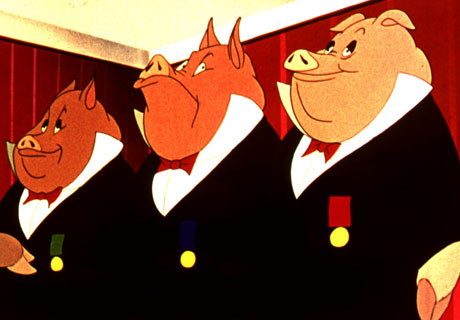ACTA, which stands for Ant-Counterfeiting Trade Agreement, is supposed to be an agreement between nations to establish intellectual property rights. On the surface it appears to be about counterfeit good like medicines and products. However, they also talk about the establishment of a new governing body outside the existing bodies like the World Trade Organization, the World Intellectual Property Organization and even the United Nations. This last part is very odd as these three bodies already perform the job that the new organization proposed by ACTA would do. The difference is that the new body would have far reaching powers that would circumvent the normal legal channels.
Additionally the push behind ACTA is deliberately removing public and developing countries from the debate. The major players are only industrialized nations (ones with large corporate interests) which violates the normal way these types of agreements are presented. The agreement will force countries to abide by US IP enforcement policies even if no laws are actually being broken in the country in question. This raises serious concerns about how trade agreements can (and do) bypass the laws in a given country, it also raises doubts about the current US government and if they serve the US population or only corporate interests.
Of even greater concern is the way that ACTA will push responsibility for keep the internet clean one step down the ladder. Groups like the MPAA and RIAA have always wanted to force ISPs to police the internet and have proposed several laws to force them to do so. Now it appears that they want network (protocol) level filtering in order to stop copyright infringement by services like BitTorrent, SFTP etc. The problem here is that network and protocol level filtering can be gotten around through the use of encryption and at times VPN (or point to point) connections. This would push the trade groups to ask for deep packet inspection.
DPI is already in place with most ISPs but it is used on a very limited basis. In fact most commercial routers can inspect HTTS and other encrypted traffic, but again usually they are only looking for virus and malware signatures. The problem is that even DPI on a minimal scale and low volume has an impact on traffic speed and network performance. To apply it on an “Always On” basis would be expensive and costly to maintain. This cost would not be covered by the trade groups, but would be pushed onto the consumer. Additionally the type of DPI that would be needed raises some VERY serious privacy concerns and opens up a whole new level of security problems for general users of the internet.
It goes without saying that some internet traffic would be excluded from the DPI scans (bases on IP range and/or origin), but everyone else’s traffic would be scanned regardless of what it was. This means that your baking information would be subject to DPI. Considering how easily Anonymous and others have broken into even “secure” facilities we can envision someone intercepting the packet scan information (as it is stored locally on the device during decryption and scanning) and offloading that information to a separate server. Also the exclusion listing can be alerted or even removed by someone knowledgeable enough.
So you can see that the people that want to put this in place are technologically incompetent and still want to create laws to control something they barely understand.
There is good news though; many nations in the European Union are dropping support for ACTA due to overwhelming protests by their citizens. This, much like the protests over SOPA and PIPA in the US, is showing just how anti-consumer these types of agreements and laws are.
We can still make a huge difference though; write your congress persons, your local representative, or the equivalent in your country and let them know that you want more transparency on this trade agreement and that you will not support any government that would enable this type or agreement to be put in place by corporate interests.
Discuss this in our Forum
Sunday, 12 February 2012 10:41
ACTA and other "Trade Agreements" seek to bypass laws and violate civil rights.
Written by Sean KalinichReading time is around minutes.
 After both SOPA and PIPA were publicly shelved the US government did what it always does. It finds a way to do what it wants, but by hiding it in other bills or (as is becoming more common) using trade agreements to by-pass laws altogether. This is exactly what we are seeing with ACTA and TPP. These two trade agreements are probably some of the most dangerous bits of work that we have read about in a very long time.
After both SOPA and PIPA were publicly shelved the US government did what it always does. It finds a way to do what it wants, but by hiding it in other bills or (as is becoming more common) using trade agreements to by-pass laws altogether. This is exactly what we are seeing with ACTA and TPP. These two trade agreements are probably some of the most dangerous bits of work that we have read about in a very long time.
Published in
Editorials
Latest from Sean Kalinich
- ConnectWise Slash and Grab Flaw Once Again Shows the Value of Input Validation We talk to Huntress About its Impact
- Social Manipulation as a Service – When the Bots on Twitter get their Check marks
- To Release or not to Release a PoC or OST That is the Question
- There was an Important Lesson Learned in the LockBit Takedown and it was Not About Threat Groups
- NetSPI’s Offensive Security Offering Leverages Subject Matter Experts to Enhance Pen Testing
Leave a comment
Make sure you enter all the required information, indicated by an asterisk (*). HTML code is not allowed.
